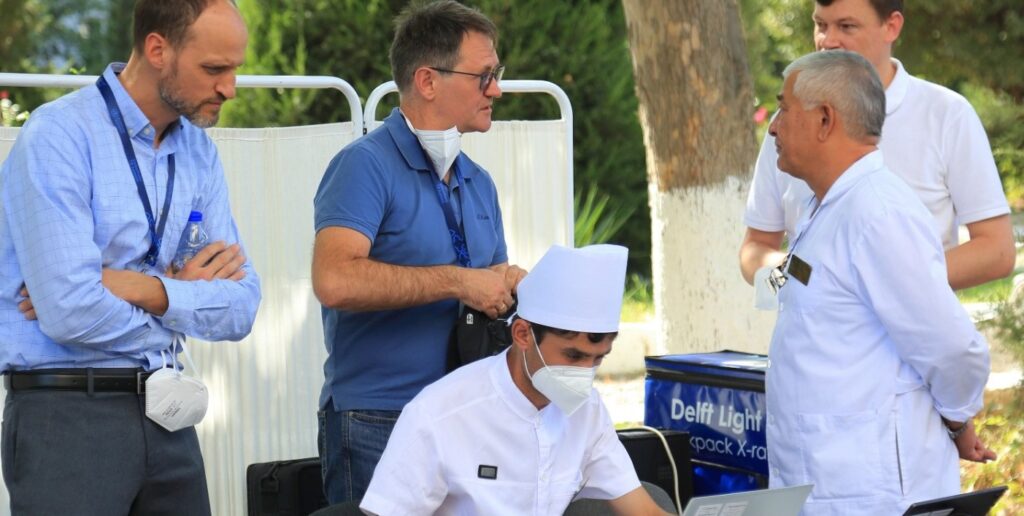Health leaders and top officials from central Asia convened at the Samarkand TB Summit on 23–24 August 2023. Hosted jointly by the Uzbekistan Ministry of Health and WHO, this landmark event served as a beacon of hope in the fight against tuberculosis (TB) in the region. Deputy ministers, national TB programme managers, senior advisers and development partners united to share innovative strategies and chart a unified course to combat the persistent TB epidemic, underscoring the critical importance of regional collaboration amid global setbacks.
The battle against TB
Despite significant progress, TB remains a deadly infectious disease, killing 1.6 million people each year. In 2018, heads of state and their representatives made groundbreaking commitments toward ending the disease at the United Nations High-level Meeting on TB. The declaration spurred impressive progress and saved many additional lives. However, the COVID-19 pandemic, coupled with other global crises, has halted and even reversed many of these gains. The need to restore progress against TB, and to do even more to end the disease, is more urgent than ever.
Strides in the face of setbacks
Despite major global challenges, Member States have achieved remarkable progress by introducing more effective tools and policies for prevention, detection and treatment. Closer collaboration across sectors and involving civil society and affected communities, has also been instrumental in addressing the underlying factors driving the TB epidemic. The key to meeting global targets in reducing TB-related deaths and suffering is the expansion of affordable access to services, diagnostics and medicines for all affected by the disease. This requires robust financing; community and civil society engagement; measures to mitigate the social and economic consequences of the disease; and the introduction of new and improved vaccines, research and innovations.
Towards the second UN High-Level Meeting
Five years after the first meeting, a second United Nations High-level Meeting will be held in September to galvanize commitment needed to accelerate progress against TB. For this landmark event, Poland and Uzbekistan have been selected as co-facilitators by the President of the General Assembly.
Recognizing this significant responsibility, the Ministry of Health in Uzbekistan with the support of WHO, invited leaders of national TB programmes from all central Asian countries, as well as from Poland, to consolidate shared efforts and momentum in preparation for this historic event.
A collaborative exchange
Participants at the summit shared experiences from their respective countries, and gained insights into high-quality TB services in action during a field visit to the Samarkand Regional Tuberculosis and Pulmonology Center. They toured world-class laboratory facilities and witnessed a demonstration of TB screening procedures using ultraportable chest X-ray technology with instantaneous reading by artificial intelligence.
Against the stunning backdrop of historic Samarkand, participants discussed simulated scenarios on TB prevention, screening, diagnosis, treatment and care. They reviewed an example of high-level national commitment – with the presidential decree in Uzbekistan released in January 2023. Attendees also brainstormed and peer-reviewed solutions tailored to their own countries’ needs. The summit concluded with participants signing a declaration to support the commitments anticipated in the forthcoming high-level meeting.
A unified path forward
With gains made against TB in jeopardy, cross-country collaboration is essential. The tools and technology are developing quickly and with shared commitment like that of the Samarkand TB Summit, TB can finally come to an end in Central Asia.
Source : WHO


